Effective Cavity Prevention Tips: How to Keep Your Teeth Healthy and Decay-Free
- What Causes Cavities?
- The Importance of Dental Hygiene in Cavity Prevention
- Cavity Prevention Tips
- Diet and Nutrition for Healthy Teeth
- The Role of Regular Dental Checkups in Preventing Cavities
- Conclusion
What Causes Cavities?
Cavities, also known as dental caries, are caused by the interaction between bacteria in your mouth and the sugars you consume. When you eat sugary foods, the bacteria in your mouth feed on these sugars and produce acid as a byproduct. This acid attacks the enamel on your teeth, gradually breaking it down and leading to the formation of cavities.
Other factors that contribute to cavities include poor oral hygiene, dry mouth, and the consumption of acidic or sticky foods. Without proper cleaning, the plaque and tartar build-up on your teeth can further accelerate tooth decay. Understanding the causes of cavities is essential for taking proactive steps in cavity prevention and maintaining optimal oral health.
The Importance of Dental Hygiene in Cavity Prevention
Good dental hygiene is the foundation of cavity prevention. Brushing your teeth at least twice a day with fluoride toothpaste helps remove plaque and food particles that can contribute to tooth decay. Flossing daily is equally important, as it reaches areas between your teeth where toothbrushes can't reach. These habits help remove the bacteria and food remnants that lead to cavities, reducing your risk of tooth decay.
In addition to brushing and flossing, using a mouthwash that contains fluoride can further protect your teeth by remineralizing the enamel and helping to prevent the formation of cavities. It's also vital to avoid neglecting your tongue, as bacteria can accumulate there too.
Cavity Prevention Tips
To protect your teeth from cavities, follow these essential cavity prevention tips:
- Brush Your Teeth Properly: Use a fluoride toothpaste and a soft-bristled toothbrush. Brush for at least two minutes, ensuring you clean all surfaces of your teeth, including the back molars.
- Floss Every Day: Flossing helps remove plaque and food particles between your teeth where your toothbrush can't reach. This prevents bacteria from building up and causing decay.
- Use a Fluoride Mouthwash: A fluoride mouthwash can help strengthen tooth enamel, making it more resistant to decay. It’s an excellent supplement to regular brushing and flossing.
- Drink Plenty of Water: Water helps wash away food particles and bacteria in the mouth, reducing the chances of plaque build-up. Fluoridated water is especially beneficial in preventing cavities.
- Limit Sugary and Acidic Foods: Foods high in sugar and acid can erode enamel and promote the growth of cavity-causing bacteria. Avoid sugary snacks and drinks, and if you must indulge, rinse your mouth with water afterward.
- Consider Dental Sealants: Dental sealants are thin, protective coatings applied to the chewing surfaces of the back teeth. They help prevent cavities by protecting enamel from decay-causing bacteria.
Diet and Nutrition for Healthy Teeth
Your diet plays a significant role in cavity prevention. Eating a balanced diet rich in vitamins and minerals, such as calcium and vitamin D, helps keep your teeth strong. Dairy products like milk and cheese are excellent sources of calcium, which is essential for healthy teeth and bones. Additionally, vitamin D helps your body absorb calcium effectively.
Foods that are high in fiber, such as fruits and vegetables, help stimulate saliva production, which naturally protects your teeth by neutralizing acids. Crunchy foods like apples and carrots also help clean your teeth as you chew, further reducing the risk of cavities.
Avoiding frequent snacking on sugary or sticky foods is key, as they can create an environment in your mouth that encourages plaque formation. Instead, choose healthy snacks like nuts, seeds, and cheese that don’t harm your dental health.
The Role of Regular Dental Checkups in Preventing Cavities
Regular dental checkups are a crucial part of cavity prevention. Dentists can identify early signs of cavities, gum disease, and other oral health issues that may not be visible to you. Early detection allows for prompt treatment, which can prevent the need for more invasive procedures like fillings or root canals.
During your checkup, your dentist will professionally clean your teeth, removing plaque and tartar that can't be eliminated by brushing and flossing alone. They may also recommend fluoride treatments or dental sealants if you're at higher risk for cavities, offering extra protection for your teeth.
It’s essential to schedule dental checkups every six months, even if you’re not experiencing any discomfort. Prevention is always easier and less expensive than treatment, so make dental visits a priority in your oral health routine.
Conclusion
Cavity prevention is an ongoing process that involves good dental hygiene, a balanced diet, and regular dental checkups. By following these simple tips, you can significantly reduce your risk of cavities and maintain healthy, strong teeth throughout your life. Remember, the earlier you start practicing cavity prevention habits, the better your oral health will be in the long run.
If you’re looking for more tips on cavity prevention or need help with your oral health routine, visit Dentistry Toothtruth for expert advice and recommendations on the best products to help prevent tooth decay.

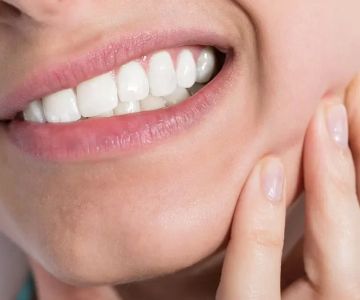
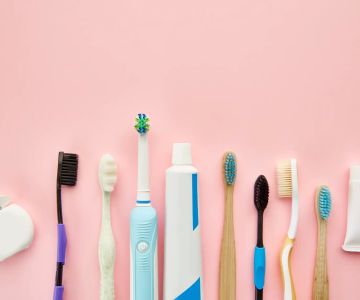

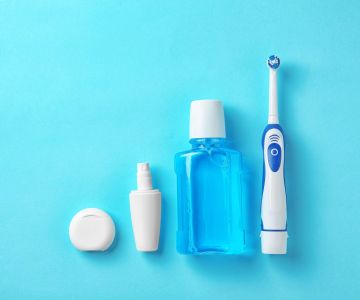
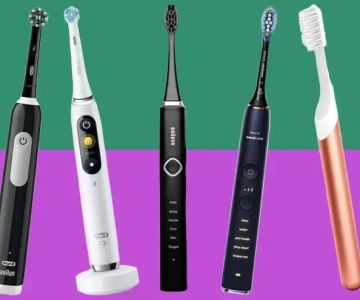
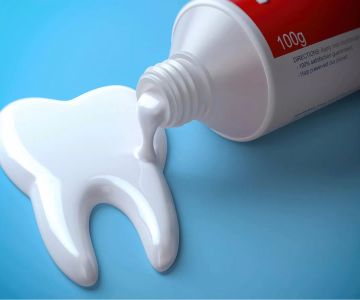
 Dr. Nathan Hammond4.0 (346 review)
Dr. Nathan Hammond4.0 (346 review) All Smiles Dentistry - Shabnam Nejati, DDS5.0 (89 review)
All Smiles Dentistry - Shabnam Nejati, DDS5.0 (89 review) Sunnyvale Pediatric Dentistry and Orthodontics4.0 (365 review)
Sunnyvale Pediatric Dentistry and Orthodontics4.0 (365 review) South Mississippi Smiles - Gulfport4.0 (454 review)
South Mississippi Smiles - Gulfport4.0 (454 review) Decatur Orthodontics5.0 (379 review)
Decatur Orthodontics5.0 (379 review) Chatsworth Family Dental Group4.0 (366 review)
Chatsworth Family Dental Group4.0 (366 review) The Importance of Oral Health Education During Pregnancy for a Healthy Pregnancy
The Importance of Oral Health Education During Pregnancy for a Healthy Pregnancy Best Tips for Brushing Your Teeth Properly for Healthy Gums: Essential Techniques for Oral Health
Best Tips for Brushing Your Teeth Properly for Healthy Gums: Essential Techniques for Oral Health Why Skipping Dental Checkups Can Lead to Bigger Oral Health Problems
Why Skipping Dental Checkups Can Lead to Bigger Oral Health Problems Advantages of Porcelain Dental Restorations
Advantages of Porcelain Dental Restorations How Can Diabetes Cause Tooth and Gum Problems? Preventing and Managing Oral Health Issues
How Can Diabetes Cause Tooth and Gum Problems? Preventing and Managing Oral Health Issues Healthy Habits for Promoting Good Oral Health and Hygiene: Tips for a Healthy Smile
Healthy Habits for Promoting Good Oral Health and Hygiene: Tips for a Healthy Smile